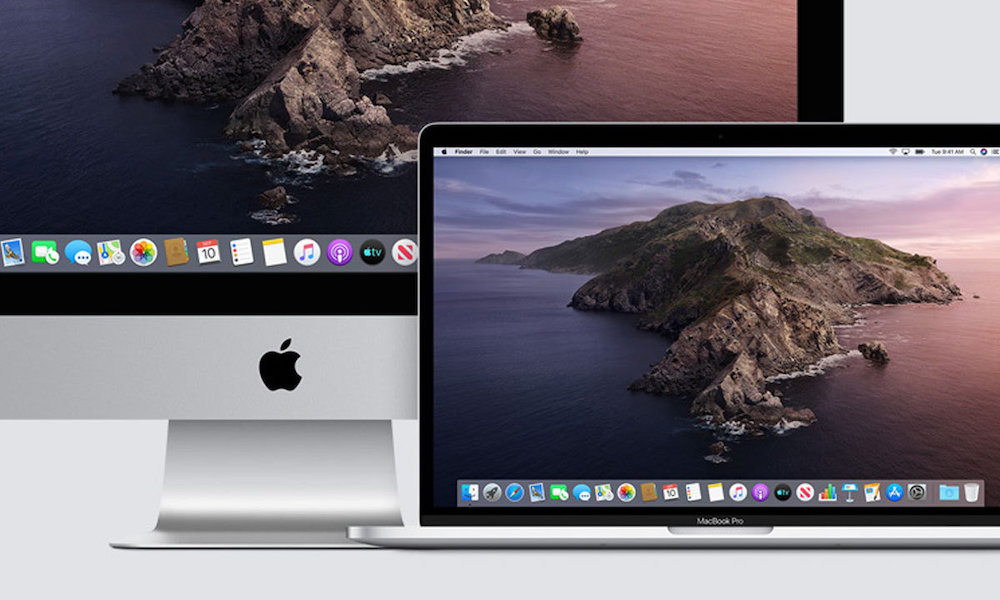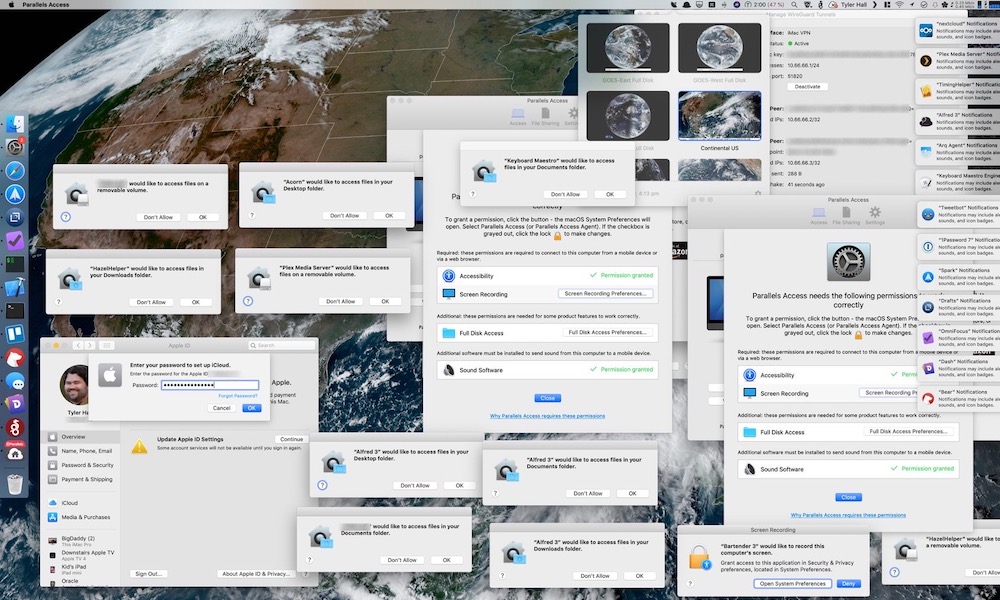5 Reasons Not to Upgrade to macOS Catalina (Yet)
 Credit: Apple
Credit: Apple
Toggle Dark Mode
Apple this week officially released macOS Catalina (also known as macOS 10.15), the first major update to its Mac operating system since Mojave last year. Because of that, many Mac users are likely eager to upgrade. But there may be a few key reasons to stay away, even more-so than past macOS releases, at least for the time being. Continue reading to learn 5 Reasons Not to Upgrade to macOS Catalina (Yet).
Catalina Doesn’t Support 32-Bit Apps
First off, if you rely on any 32-bit apps, you should stay away from macOS Catalina. At this point, you’re probably familiar with macOS 32-bit compatibility warnings. Those warnings won’t show up in Catalina. Your 32-bit apps simply won’t run on the new software.
Because of that, if you use any “mission-critical” software that’s currently 32-bit or that has 32-bit dependencies, you’ll want to avoid updating.
You can check for 32-bit software by:
- Clicking the Apple logo button in the menu bar.
- Click About This Mac.
- Click System Report.
- Find Legacy Software. Your 32-bit apps should show up here.
As far as what you should do if you do have critical 32-bit apps, it’s not as clear. You should try contacting the developer of those apps to see if they are planning to update to 64-bit. If they are, try to get a timeline for said update. If not, try to find an alternative app.
Security Features May Cause Trouble
As you might expect, Apple always works to increase the security and privacy of its devices. macOS Catalina, for its part, introduces a slew of new features that should make your Mac more private and secure. But those same features may cause problems for users and developers.
For one, macOS Catalina now runs on a read-only file system, which can break compatibility for backup apps (until they patch it). Apps are now required to request permissions for everything from keystrokes to screenshots — which could break older apps that don’t know how to request or deal with these permissions.
And then there’s the new app notarization requirement for apps distributed outside of the Mac App Store. These requirements won’t prevent you from running un-notarized apps, but they will make it a bit harder and more annoying to do so.
While Apple is hoping to ease the transition, it may be smart to wait until your favorite developers catch up.
Catalina May Be Buggier Than Usual
Search for opinions about macOS Catalina and you’ll find differing reports. Some users indicate that Catalina is fairly stable, while others suggest it’s one of the buggier macOS releases in recent history.
(Your own mileage will likely depend on the Mac model you’re running and the software you use.)
If Apple’s other 2019 software releases are any indication, things may not look up for Catalina. iOS 13, iPadOS and watchOS 6 have all been unusually buggy. And Apple has actually taken to putting out rapid-fire releases to try and fix many of those issues.
Those quick bug fixes are appreciated. But, as an end user, you’ll probably want to wait for more stable releases. You may not run into significant problems on macOS Catalina, but it’s going to be best to err on the side of caution.
None of the Upgrades Are Mission-Critical
Here’s the kicker with the potential problems in macOS Catalina: they may not be worth it. Unlike past versions of macOS, many users report that the upgrades and new features in Catalina aren’t compelling enough reasons to update right away.
Sure, there’s a new Sidecar feature and the new security mechanisms will likely help consumers ward off attacks and malicious apps. But most of the marquee features in Catalina are aimed at entertainment — the addition of Apple Arcade; the new Music, Podcasts, and TV apps; etc.
Unless you use your Mac predominantly for entertainment or to consume media, those features and upgrades are likely not worth the risk. Or, at least, they aren’t worth upgrading immediately for.
Your Mac Is Probably Important
If you use a Mac in your day-to-day life, there’s a good chance that whatever you use it for is important. Whether it’s work, creative pursuits or education, the tasks you carry out on your Mac are likely much more important than the ones on your iPhone or iPad.
Because of that, we generally break away from the usual advice of updating to the latest software as soon as possible. It’s a risk and reward type of scenario. While Mac updates typically carry important security patches and other functionality, it’s simply not worth it if it impairs your ability to work.
Even without Catalina’s specific issues, we’d generally recommend waiting a few months before updating to a new major macOS version. Wait for a point release, particularly a “.2” one. By that time, many of the major issues will have been discovered by early adopters and hopefully addressed by Apple and third-party developers.











